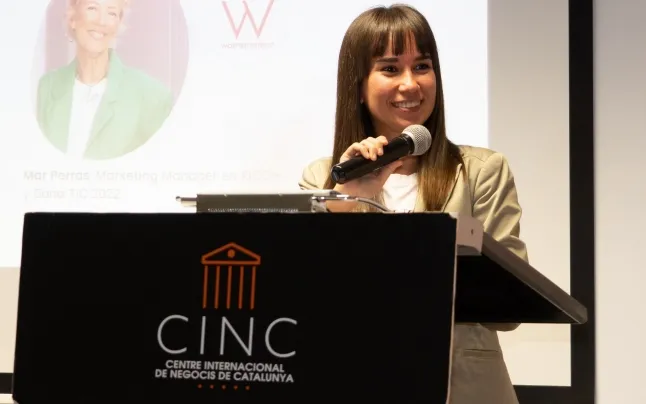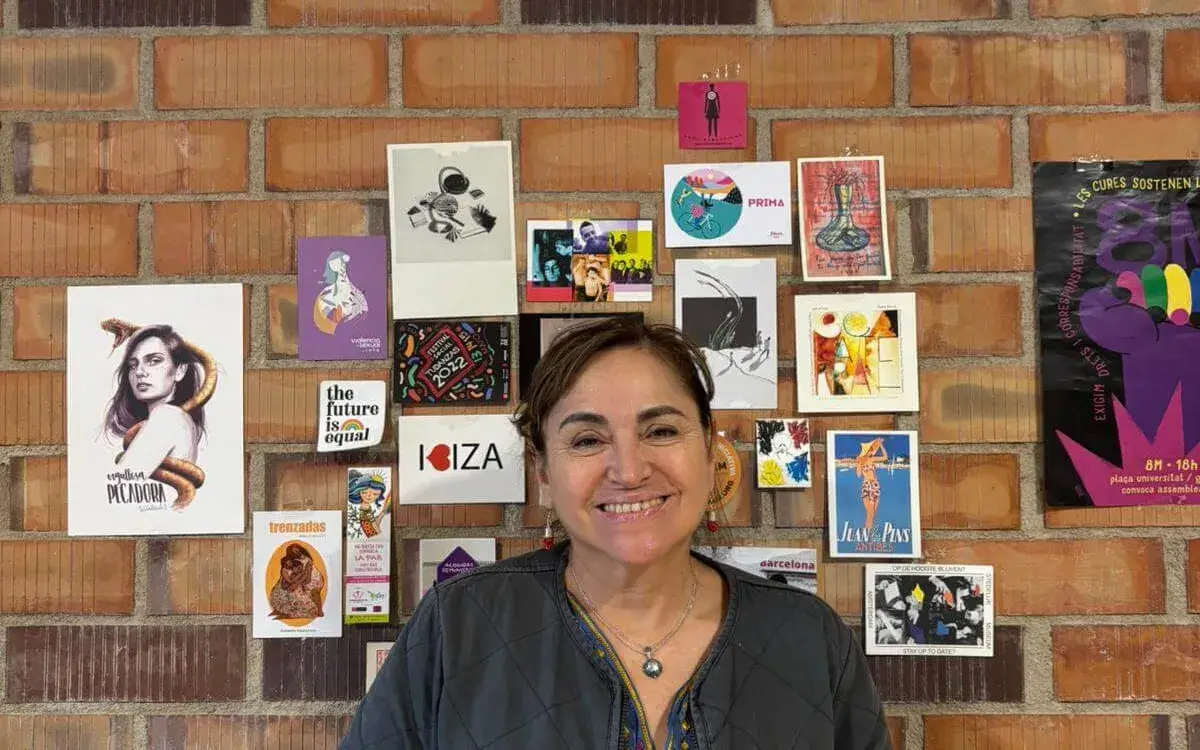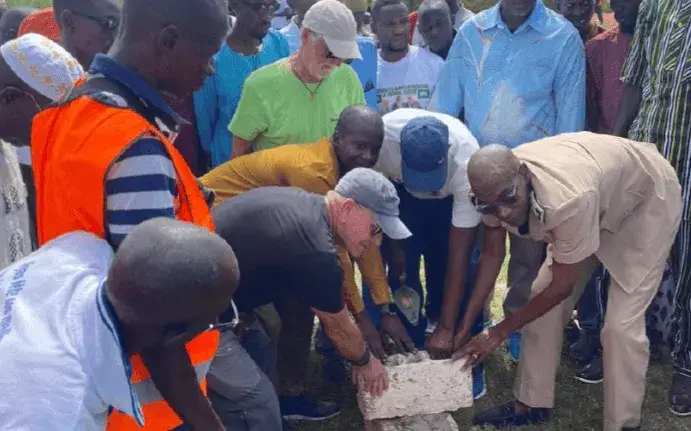Mary Milena: "Those who work in communication have the responsibility of making social transformation"
Almena Feminista has been advocating for women's rights at regional, national and international levels for more than five years.
Almena Cooperativa Feminista is one of the leading organizations in the fight for women's rights in Catalonia. For more than five years, the cooperative has been developing political advocacy projects at the international level, working with countries such as Mexico, Guatemala and Mozambique.
One of the keys to the cooperative's work is its way of communicating, which ranges from the creation of a story consistent with the entity's values, to concrete communication actions to make the projects have access to social networks and media.
To find out more about Almena Cooperativa Feminista's communication, we spoke with Mary Milena, the organization's communication technician.
What does the task of a communication technician consist of?
I raise it from a double perspective. On the one hand, when you are a communication technician, you have the commitment to be the communication manager for all those projects that arrive at your organization. In our case, sometimes they are our own projects, that is to say, they are born from an own idea of the Almena team, and other times, they are projects that we get from subsidies together with other entities, and then we we adapt to this assignment, joining the project as a cooperative.
Then, in my case, I also become the communication technique for that specific project, and this is where the communication plans come in, the communication actions that are carried out on social networks, the events, the round tables that are 'organize, the relationship with the media, press releases, etc. In short, any action that, depending on the project, must be taken into account, must be executed and must be put in place so that the project makes sense and gets where it needs to go.
That would be one of the two perspectives you mentioned. what is the other one?
The other part of being a communication technician would be to be the technician of the entity where you work. In other words, I also have the responsibility, together with all the colleagues, to build a story and to make Almena's values visible.
In other words, I am also in charge of telling the story of what Almena is, what we do, who we are and why the cooperative was started, that is, what is our reason for being, our mission and the our vision
"In communication, you are always building a story and you are building a truth that must really coincide with the truth of your cooperative or your project."
Do you think that communication, especially that which is done from entities, has a transformative element?
Yes, totally. And not only in organizations but in general, communication is an element of social transformation. So, in a way, whoever works in communication, in whatever sector, has the responsibility to make social transformation, especially in a political context like the one we are in now, at a time when there is a large amount of misinformation
In communication, you are always building a story and you are building a truth that must really coincide with the truth, in this case, of your cooperative or your project. We have moved towards a society that is increasingly, at a digital level, gaining strength and communication in this aspect is also of paramount importance.
What are the particularities of being a communication technician for a social entity, in this case, a cooperative?
For us, since Almena is a cooperative, it means going beyond the legal form, that is to say, if you set up as a cooperative, it is because you believe in it at the level of philosophy of life and philosophy of work. You believe that all opinions are equal, that there should not be a vertical hierarchy and you believe that this group and community way of doing things is the cooperative's raison d'être.
And of course, this challenges work in every sense, but also communication. I am the communication technician, but really a lot of what I do, not to say very well everything, is decided in common, in some way. It is an atmosphere of doing, of believing and of working that I had not experienced before and that I think would hopefully be a way to make it established in all professional sectors.
What process do you follow to come up with a communication campaign for a project?
First of all, it must be taken into account that depending on the project and where it comes from, the communication campaign varies a lot, but in the end, as a communication technician, I think you have to be present in everything moment In other words, my figure is like transversal in all the construction phases of a project.
Because? Because then you have to know what you are communicating and you have to know where each piece of information comes from and what has been decided and how it has been decided, because if not then the message you give or not will fit with what has been done or there will be things that will not be correct. From here, my task is to decide what this communication plan will contain, program it, make the argument and the strategic line, the story, you have to decide who your target audience is, etc.
What good practices could organizations incorporate in order to improve their communication?
The first thing I will tell you is that above all what must be taken into account is that the majority of cooperatives, and in general entities, are very dependent on the projects that come to us and, in the end, one of our reasons to be is not to have a profit motive and sometimes we have many ideas of how to do good communication that cannot be carried out.
From there, a number of best practices could be highlighted, such as having a spokeswoman figure in the team who does a bit of media liaising. Then it is also vital to always agree together, as a team, on the positions, the strategic lines, the terminology, not only of a project, but of your reason for being as a cooperative.
Is there a specific methodology to incorporate these good practices?
I think it is very important to channel a single specific methodology when communicating with the organization. Because? Because journalism is very immediate. Sometimes a journalist contacts you and asks you for something overnight, and I don't mind because I understand journalism, but sometimes the structure of a cooperative works completely differently.
And when everything has to be agreed upon, team meetings have to be held, requests don't move as fast as they could. Then this channeling of the specific methodology at the level of information and participation must be worked on very well here so that we continue to be present in the immediate communication that arrives now and in the ways of doing things for journalists without losing your cooperative structure and to work in a team.
"For us at Almena, being a cooperative means going beyond the legal form, that is to say, if you set up as a cooperative, it is because you believe in it at the level of philosophy of life and philosophy of work."
And, continuing with good practices, which ones should organizations incorporate in order to make their communication more feminist?
At the level of feminism, especially for entities that, perhaps, are not entirely dedicated to feminism, but that want to do feminist communication, it is very important to do training, to work on everything that is the part of communication in inclusive and non-sexist language. I would also emphasize the importance of supporting yourself in other entities that do perhaps have more strength in this part and to help each other.







Add new comment